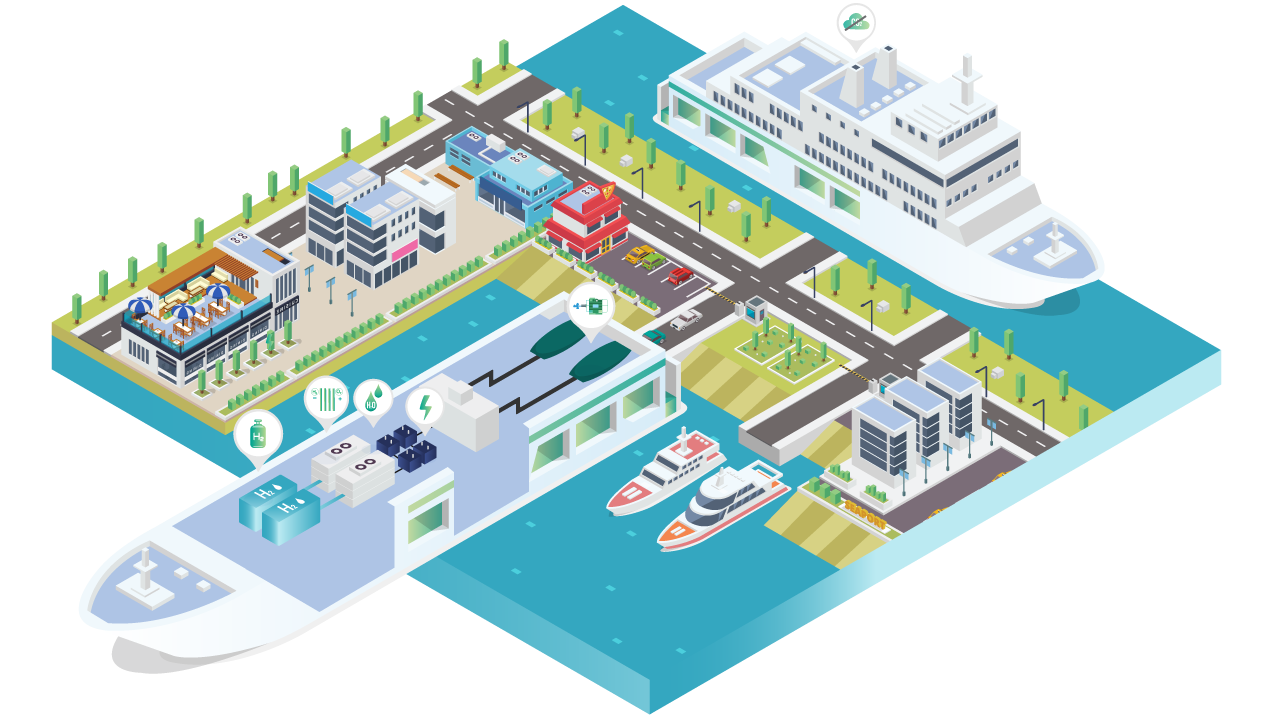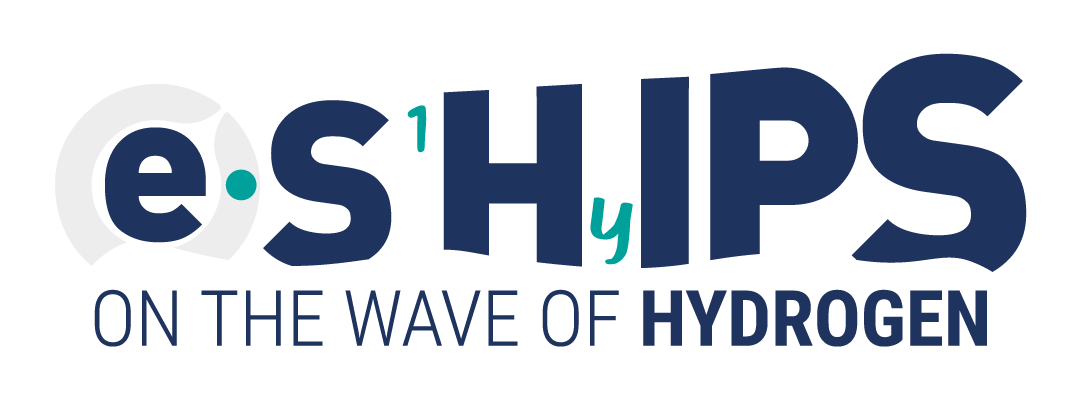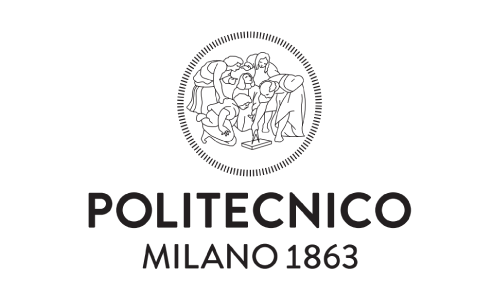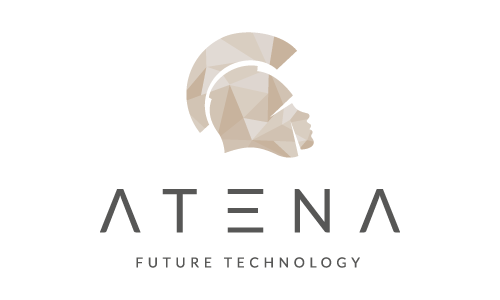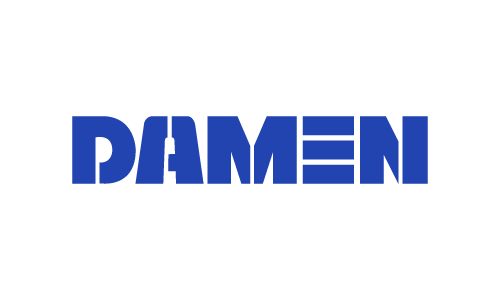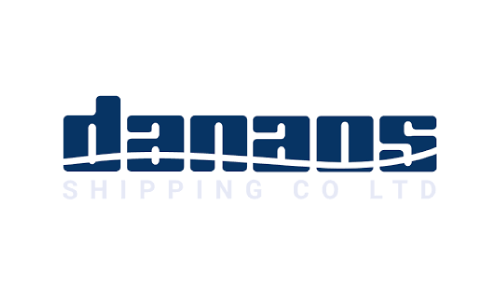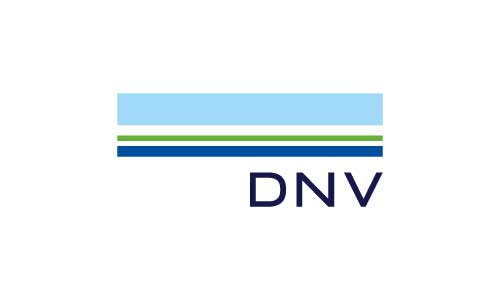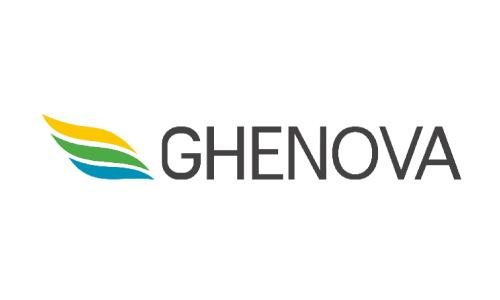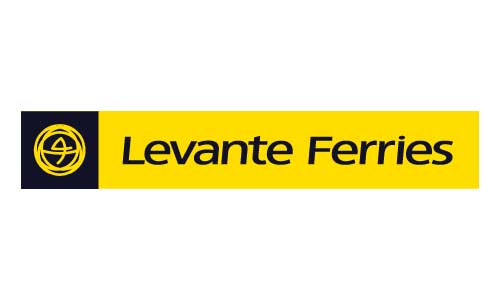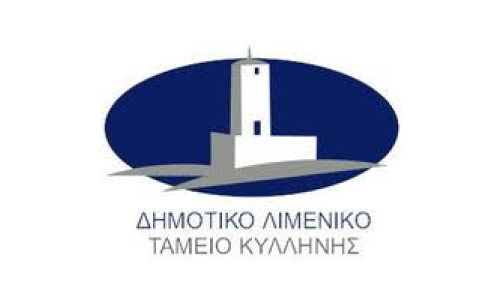Objectives
The main barrier for the development and certification of safe, reliable, robust, economically viable and eco-friendly hydrogen-based fuels passenger ships is the lack of a normative framework based on a comprehensive knowledge database and a full experimental data campaign.
The project aims to contribute to the development of a goal-based regulatory framework on the use of hydrogen and hydrogen-based alternative fuels for waterborne transport. Through a lean-agile methodological approach the project will identify and ensure the correct management of risks in all aspects related to design and operation of passenger ships.
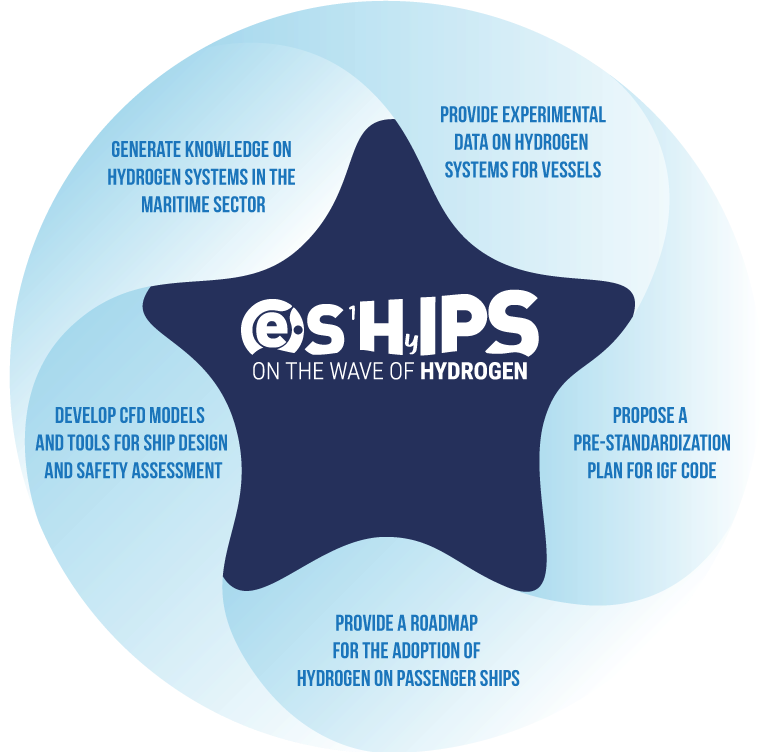
This purpose will be satisfied by:
- defining a pre-standardization plan for the IGF Code update of the section for hydrogen-based fuels passenger ships
- suggesting the implementation and modification of international standards and RCS for a more harmonised normative landscape
- creating a roadmap to boost the Hydrogen economy in the maritime sector
- providing appropriate tools for the ship designers and engineers
The project has five objectives:
- Generate new and missing knowledge to define a standardized database and a data gathering methodology on the arrangement and installation of hydrogen-based fuels systems for propulsion and auxiliary purposes.
- Provide unique experimental data for the definitions of mandatory criteria for the arrangement and installation of machinery, equipment and systems for vessels operating with hydrogen-based fuels to minimize the risk to the ship, its crew, passengers and the environment.
- Propose a pre-standardization plan for IGF code update for the hydrogen-based fuels passenger ships international regulation.
- Provide a roadmap for the adoption of hydrogen-based fuels on passenger ships in EU maritime sector, to boost the hydrogen economy.
- Develop CFD models and tools for ship design and safety assessment, by exploiting the potentialities of Complex System Simulation SWs and HPC, in synergy with the EuroHPC Joint Undertaking
